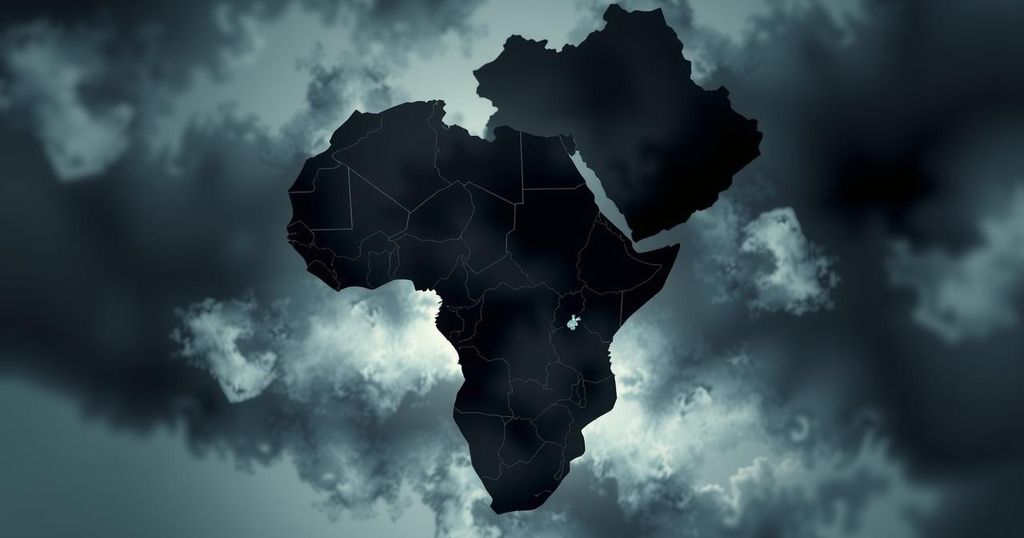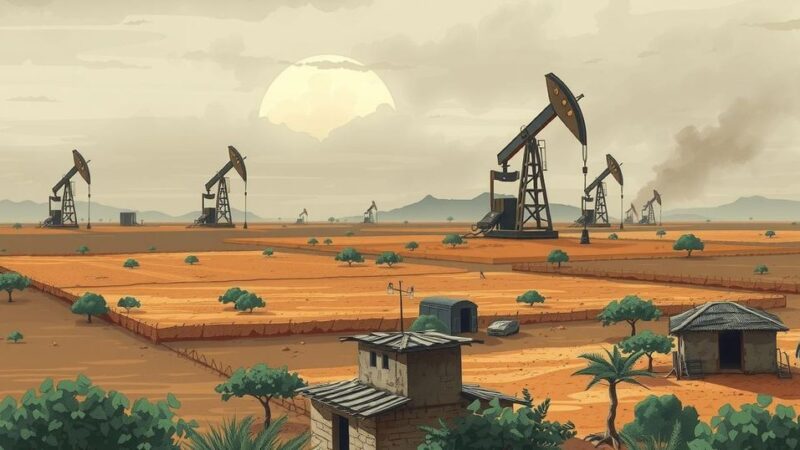Riots in Juba erupted in response to the massacre of South Sudanese citizens in Sudan, prompting protests and chaos. The violence was fueled by reports of atrocities following the Sudanese Armed Forces’ recapture of Wad Madani. The South Sudanese government protested the killings, while the U.S. imposed sanctions on military leaders involved in human rights violations.
On January 16, riots erupted in Juba, South Sudan, as demonstrators protested against the massacre of South Sudanese citizens in neighboring Sudan. Amid the unrest, individuals looted shops owned by Sudanese nationals and attacked the Sudanese embassy, resulting in the death of a diplomat. Police were forced to fire into the air to control the situation, which escalated following reports of civilian massacres after the Sudanese Armed Forces (SAF) recaptured Wad Madani.
The SAF resumed control of Wad Madani on January 11, 2023, from the Rapid Support Forces (RSF) paramilitary group amid rising tensions. The region, considered a refuge during conflicts, became a site of violence, with disturbing videos circulating online revealing atrocities committed by SAF soldiers against both South Sudanese and Sudanese individuals from Western Sudan. In response, the South Sudanese Ministry of Foreign Affairs summoned the Sudanese ambassador to issue a formal protest regarding the “loss of lives of innocent citizens.”
In response to the allegations, the Sudanese government announced a commission of inquiry into the events in Wad Madani. The Sudanese ambassador claimed that the actions leading to these human rights violations were perpetrated not by regular troops but by a militia affiliated with the SAF. While a spokesman for the SAF acknowledged that some violations occurred, the chaos following the recapture of Wad Madani revealed severe consequences for the local population trapped in the area due to previous conflicts.
The United States government reacted by imposing sanctions on the leaders of both the RSF and SAF for their roles in the civilian massacre. This included sanctions on General Abdel Fattah Al-Burhan, commander of the SAF, and RSF head Mohammad Hamdan Dagalo Mousa. Furthermore, Ahmad Abdalla, associated with the Defence Industries System, faced sanctions for violating the UN arms embargo against the factions in Sudan.
Recent tensions between South Sudan and Sudan have escalated due to violent reprisals and human rights abuses, particularly following the SAF’s recapture of Wad Madani. This city, previously a refuge for many fleeing conflicts, witnessed significant tragedies affecting its population. The involvement of militia groups and the disorder on the ground exacerbate the civilian plight, catching the attention of international communities and leading to sanctions against military leaders involved in these heinous acts. The situation is rooted in a larger conflict in Sudan, with various factions contesting power and control, frequently resulting in grievous human rights violations. The ongoing instability has encouraged protests in South Sudan as citizens demand accountability and justice for their compatriots affected by the violence. The reaction from both local and international bodies highlights the growing urgency to address these pressing humanitarian issues.
The unrest in Juba reflects profound regional tensions following the horrific events in Wad Madani, where South Sudanese civilians became victims of violence during the SAF’s military operations. The subsequent protests illustrate the deep-seated anger and demand for justice among South Sudanese citizens. The international response, marked by sanctions against military leaders, underscores the urgent need to address the ongoing human rights violations and to seek a peaceful resolution to the conflict affecting both nations.
Original Source: www.fides.org






